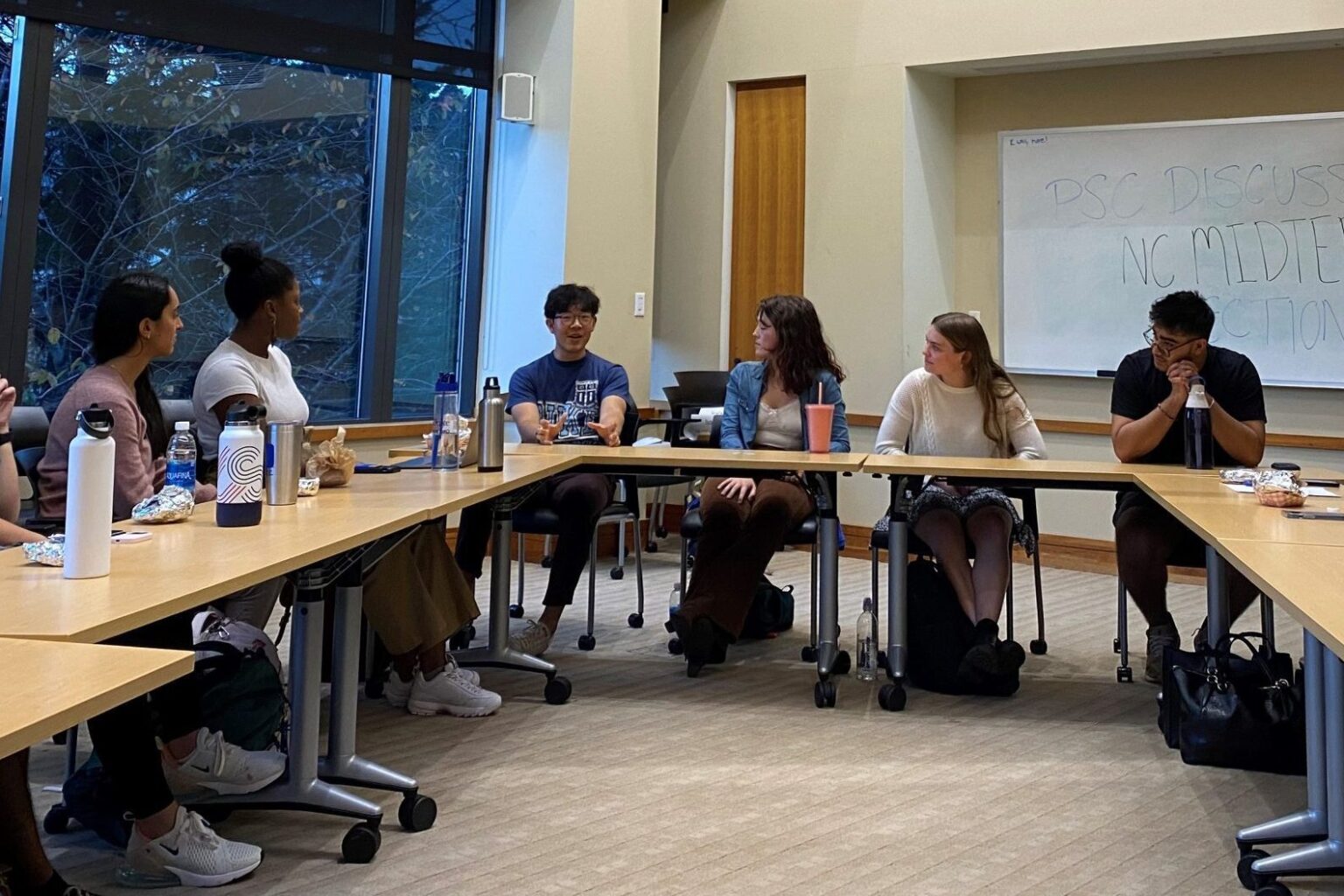
Polis Recap:
PSC Dinner & Discussion: NC Midterm Election
Rosa Golchin (PPS '24)
Nov 4, 2022
“This might be the last time that Duke students can vote early, because that might not be a policy that is around in 2 years.” - Kunal Khaware
On November 3rd, Polis Student Committee members joined a panel of four students and two professors to discuss the upcoming North Carolina midterm elections, their motivations for engaging with initiatives to get out the vote, and the importance of the youth voice in politics.
Speaking at the panel were Chloe Decker (’25) of NC Young People’s Alliance; James Gao (’24), President of Duke Dem’s; Kunal Khaware (’26) host of the New Voting Project; and Kelly Padalino (’25) Intern for Cheri Beasley. The student speakers were joined by Deondra Rose, Kevin D. Gorter Associate Professor of Public Policy & Director of POLIS, and Mac McCorkle, Professor of the Practice in the Sanford School of Public Policy. The event was moderated by Jaquell Sneed-Adams, a Master of Public Policy student at the Sanford School of Public Policy and a North Carolina native.
The conversation began with each panelists’ reflection on how they first got engaged with politics and activism. Decker, who was actively involved in planning the school’s first ‘Democracy Day’ to make early voting accessible and appealing to students on campus, got her start working at the polls. She found this a fun entryway into politics, joining Duke Student Government and the NC Young People’s Alliance to further her efforts to encourage students to engage with Durham and local politics.
Gao began his journey in high school and witnessed a notable shift upon arriving on campus. He recalled being surprised that despite the fact that an overwhelming majority of incoming students identify as liberal, there was not a strong political community among undergraduates. Gao has sought to build such a community through his work with Duke Democrats and sees the midterm elections as an opportunity to make change in North Carolina, student’s new home for the next four years.
Professor Rose also began her political journey early in her academic career. After interning for a state legislator, she was invited to serve as the manager of a state senator campaign in her senior year of high school, where she “learned the ropes.” She continued with grassroots work and voter registration in college before going to D.C. and receiving training from Obama’s PAC. She then went on to earn her PhD in government.
Professor McCorkle first became politically involved during his undergraduate schooling at Princeton University, where he worked for the NBC News Election Coverage unit. He came to Duke for his law degree where he met Terry Sanford, former president of Duke, who became his mentor. He returned to practice law at Sanford’s firm after clerking and spent the rest of his career as a political consultant.
When asked what is at stake during this election, Professor Rose stated that the most important issue on the ballot is democracy itself, manifested in voting rights and voting access. She also voiced concern over equity and educational opportunity as court decisions on affirmative action begin to form. Professor McCorkle pointed to inflation and crime as the most important issues on the ballet as they are the primary Republican talking points.
Khaware believes down-ballot measures have much more relevance to people and daily life than at the federal level. He says, “Where it affects your local community is really what’s important to me, especially during midterms.” Padalino said that while abortion access is the most important issue to her, for those living in Durham with children enrolled in the Durham Public School system, board of education measures would likely be the most important. At the state-level, gas prices are also important. She argues, “local politics really aren’t purple; they are partisan,” and urged students to educate themselves about local measures. Gao underscored the need for a functional government and echoed the importance of local government. He reminded students that these policies have tangible impacts on them, stating “This might be the last time that Duke students can vote early, because that might not be a policy that is around in 2 years.”
RELATED CONTENT
- « Previous
- 1
- 2
- 3
- 4
- Next »


